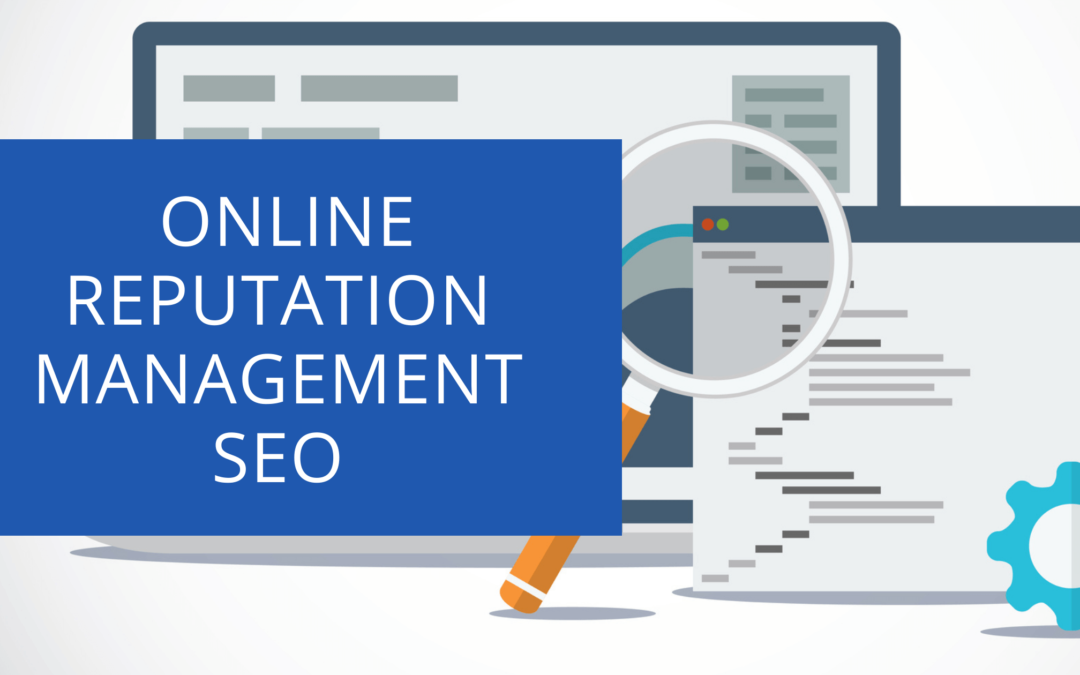Online reputation management (ORM) is the process of monitoring and influencing the reputation of a business or individual online. The goal of ORM is to protect your good name and ensure that any negative sentiment doesn’t spread too far and hurt your bottom line.
While there are several ways to approach ORM, one of the most effective is through SEO. By optimising your website and content for search engines, you can push down any negative results and make sure the good stuff shines through.
Here we’ll walk you through everything you need to know about ORM SEO, from basics to advanced techniques. Let’s get started!
Contents
What is Online reputation management (ORM)?
ORM is the process of monitoring and influencing your reputation online.
An effective ORM strategy involves regularly checking what’s being said about you online, then using this information to address any issues or concerns that may arise. The ultimate goal? To protect your good name while ensuring the positive things people say about your brand are easily found by potential customers.
How can I use ORM to improve my SEO?
An active ORM program should work hand-in-hand with an optimised website – together these two elements form a powerful combination for success in Search Engine Optimisation (SEO). The reason ORM and SEO work so well together is that they both rely on the same two concepts – content and links.
How do I use online reputation management (ORM) as part of an SEO strategy?
 The best way to optimise your website for search engines, including Google, Yahoo! Search and Bing, is pleasing their algorithm with the right kind of content and backlinks.
The best way to optimise your website for search engines, including Google, Yahoo! Search and Bing, is pleasing their algorithm with the right kind of content and backlinks.
You want high-quality inbound links that point back to your site from reputable sites within your niche or industry.
Here are a few steps you can take towards this goal:
- Build Backlinks: There are several ways to build backlinks to your website. Depending on the competition’s number you referring domains you will need to aim for this for any significant impact on your search engine rankings.
- Publish Quality Content: This is one of the most important aspects of SEO, and it’s also key to an effective ORM strategy. When you publish new, high-quality content that’s relevant to your target audience, other websites will be more likely to link back to you as a source of valuable information.
- Use Social Media: Platforms like Twitter, LinkedIn, and Facebook offer great opportunities for reaching out to potential links sources and building relationships with influential people in your industry or niche.
How can I use online reputation management (ORM) to improve my website’s visibility?
There are two main ways that ORM can help improve your website’s visibility – by pushing down negative results and by increasing the number of high-quality inbound links to increase your website’s ranking.
Pushing Down Negative Results
One way to use ORM is to push down any negative content that may show up in search engine results pages (SERPs). This can be done by using a variety of techniques such as creating positive websites, articles, or social media profiles to drown out the bad stuff.
Increasing Inbound Links
Another way to improve your website’s visibility is by increasing the number of high-quality inbound links from reputable sites. This can be achieved through an effective ORM campaign that targets quality links sources and builds relationships with influential people in your industry or niche.
What are some common online reputation management (ORM) techniques?
There are a number of ORM techniques that can be used to improve your website’s visibility and protect your online reputation.
Some common ORM techniques include:
- Monitoring Websites and Social Media: Regularly monitoring websites and social media platforms for any mention of your brand is essential for an effective ORM strategy. This includes review sites, industry blogs, and discussion forums.
- Creating Positive Content: One way to push down negative results in search engine results pages is by creating positive content about your brand. This could take the form of articles, blog posts, websites, or social media profiles.
- Contacting Webmasters: If you find negative content about your brand on another website, you may be able to get it removed by contacting the webmaster.
- Building Relationships with Link Sources: A successful ORM strategy requires more than just high-quality content – it also takes a lot of time, effort, and contacts to build relationships with people who matter in your niche or industry.
What are the benefits of using an ORM service provider?
If you’re not a pro at SEO or ORM, it can be difficult to do everything on your own. An ORM service provider will have access to more resources than you could ever hope for and they also have the experience of working with clients just like yourself.
Experienced online reputation management (ORM) professionals have many contacts in the industry who are willing to link back to their websites.
How should I choose an ORM company?
There are several things you should look for when choosing an ORM firm: The best way is probably going through recommendations from friends or colleagues who’ve used such companies before.
Another good way to find the right ORM service is by reading reviews from other people who have used these companies. You can also search for them on Google and check out their websites, blog posts, social media profiles or even ask your potential company for a sample of some work they’ve done in the past.
Online Reputation Management SEO FAQs
How Do You Handle Negative Reviews On Yelp?
 Yelp is one of the most common places where people leave negative reviews. In some ways, this can be an opportunity for your ORM campaign because you’re able to reach out and address each review directly.
Yelp is one of the most common places where people leave negative reviews. In some ways, this can be an opportunity for your ORM campaign because you’re able to reach out and address each review directly.
What Does An Online Reputation Management Consultant Do?
An expert reputation management consultant will help you determine what issues need fixing first by analysing your website metrics data as well as checking out any existing online content that may be harming your brand.
They’ll then put together a plan of action which could include creating new positive content, contacting webmasters to get harmful content removed, and reaching out to influential people in your industry for links back to your site.
Finally, they’ll help you track the progress of your ORM campaign so you can see how well it’s working overtime.
Can You Remove Negative Posts From The Internet?
While it’s not always possible to remove negative posts from the internet completely, there are ways an experienced ORM professional can help push them down further in search engine results pages (SERPs).
This is done by creating more positive content about your brand as well as building relationships with key sources who are likely to link back to your site when they hear about the negative content.
By creating a strong web of positive and authoritative links, you can help push down any negative information that’s currently showing up in search engines for certain keywords or phrases.
We Offer SEO Services Nationwide
- Chester:https://mediakynect.co.uk/seo-chester/
- Wirral: https://mediakynect.co.uk/seo-wirral/
- Liverpool: https://mediakynect.co.uk/seo-liverpool/
- North Wales: https://mediakynect.co.uk/seo-north-wales/
- Wrexham: https://mediakynect.co.uk/seo-wrexham/
Conclusion
Online reputation management (ORM) is becoming more and more important as the world becomes ever-more interconnected. Maintaining a positive online presence will help you build trust, authority, and credibility – all essential elements to building a successful business online or offline!

